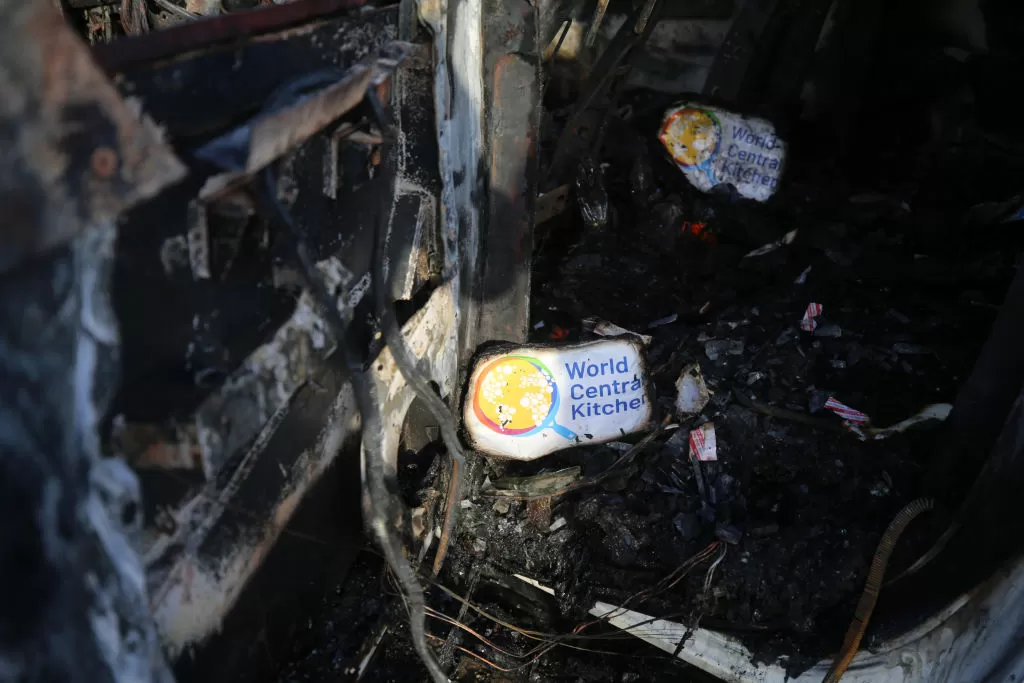Gaza’s Food Supplies: A Long-standing Concern
The ongoing conflict in Gaza has brought to light a number of pressing issues, one of which is the threat of weaponization of food supplies. While this may seem like a recent development, the truth is that Gaza’s food supplies have been at risk of weaponization for a long time, well before the current conflict. This is a concerning issue that needs to be addressed immediately, as it not only affects the health and well-being of the people of Gaza, but also has a far-reaching impact on the region as a whole.
Gaza, a small strip of land on the eastern coast of the Mediterranean Sea, has been under a blockade by Israel since 2007. This blockade has severely restricted the movement of people and goods in and out of Gaza, including essential food supplies. As a result, the people of Gaza have been forced to rely on food aid from international organizations and humanitarian agencies. However, even this aid has been limited, with Israel imposing restrictions on the types and quantities of food allowed into Gaza.
The blockade has also had a devastating effect on Gaza’s economy, making it difficult for the people to access basic necessities such as food, water, and medicine. The lack of economic opportunities has led to high levels of poverty and unemployment, making it even more challenging for the people to afford food. This has resulted in a heavy dependence on food aid, further exacerbating the issue of weaponization of food supplies.
Weaponization of food supplies refers to the intentional use of food as a weapon of war. This can take various forms, such as withholding food aid as a means of control, targeting food production and distribution facilities, or contaminating food with harmful substances. In Gaza, the weaponization of food supplies has been a constant concern, with reports of food aid being withheld or destroyed by Israeli forces. This not only deprives the people of Gaza of their basic right to food, but also violates international humanitarian law.
The weaponization of food supplies has severe consequences, both in the short and long term. In the short term, it leads to food insecurity, malnutrition, and even starvation. In the long term, it can have a lasting impact on the health and well-being of the population, as well as the economic and social stability of the region. It also creates a vicious cycle of dependency on food aid, making it difficult for the people of Gaza to break out of poverty and achieve self-sufficiency.
The current conflict in Gaza has only exacerbated the issue of weaponization of food supplies. The destruction of infrastructure and farmland, as well as the displacement of thousands of people, has further limited the availability and access to food. The indiscriminate bombing and shelling have also caused widespread damage to food production and storage facilities, making it difficult for aid agencies to deliver food to those in need.
The international community has a responsibility to address the issue of weaponization of food supplies in Gaza. This includes putting pressure on Israel to lift the blockade and allow for the free movement of goods and people in and out of Gaza. It also involves providing adequate funding and support to humanitarian agencies to ensure the delivery of food aid to the people of Gaza.
Moreover, steps must be taken to promote self-sufficiency and economic development in Gaza. This can be achieved through investment in agriculture, infrastructure, and other sectors that will create job opportunities and reduce the dependence on food aid. Empowering the people of Gaza to produce their own food will not only address the issue of weaponization of food supplies, but also contribute to the overall development of the region.
In conclusion, the weaponization of food supplies in Gaza is a long-standing concern that needs to be addressed urgently. The blockade and ongoing conflict have only worsened the situation, making it difficult for the people of Gaza to access essential food supplies. The international community must take concrete steps to put an end to the weaponization of food supplies and work towards promoting self-sufficiency and economic development in Gaza. Only then can we ensure a better future for the people of Gaza and the region as a whole.



